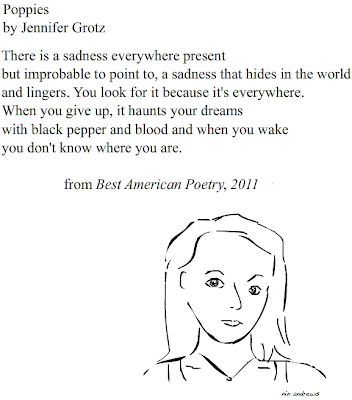I was reading this week's New Yorker and was struck by the bizarre connection between first the article called "Free Everything," by Miranda July, about a woman who was a compulsive thief, and
second, the creepy article, "State for Sale," by Jane Mayer, about Art Pope (who is affiliated with and much like the Koch brothers) and his ability to buy North Carolina's politicians.
Check out these quotes from "Free Everything." They sound a lot like Wall Street trader logic to me.
"But it wasn't just the supermarket--the whole world was one giant heist."p.58
"Everyone I knew did these things."p.58
"Because what is money anyway? It's just a concept some asshole made up." p. 58
"Still, for a long time I thought my biggest heist was fooling everyone into believing that I was an upstanding citizen, a sweet girl." p. 58
And here are a few quotes from the Pope article. It's a long article, worth reading, and I can't do it justice or quite show how it made me feel like a victim of some kind of heist. I suppose what really upsets me is that it seems that what is happening in North Carolina is also happening in Ohio, particularly the assault on unions, higher education, early voting. Even our local paper, here in a union town, is more and more like Fox News.
A few quotes:
1. . . ."3/4 of the spending by independent groups in North Carolina's 2010 state races came from accounts linked to Pope." p. 93
2. "Republican state legislators have also been devising new rules that, according to Democrats, are intended to suppress Democratic turnout in the state, such as limiting early voting and requiring voters to display government-issued photo I.D.s."p. 92
3. "Meanwhile, Bob Luebke, a researcher at the John W. Pope Civitas Institute in Raleigh, which the Pope family almost single-handedly funds, has written that the poor in America live better than the 'picture most liberals like to paint.'" . . . "a majority of the poor have refrigerators, cable television, microwaves, and shelter."p. 95
4. ". . . fellows at the Pope-funded think-tanks have repeatedly assailed minimum-wave laws."p.96
5."He also believes that the collapse of the traditional news business has provided an opening: 'Our goal is to fill in some of the gaps as the state press corps shrinks.'"p.99
6. "Another Pope-funded organization is the John William Pope Center for Higher Education Policy, . . . It has pushed for deep budget cuts in the state's celebrated university system, and as been a harsh critic of its alleged liberal tilt." 100


















































